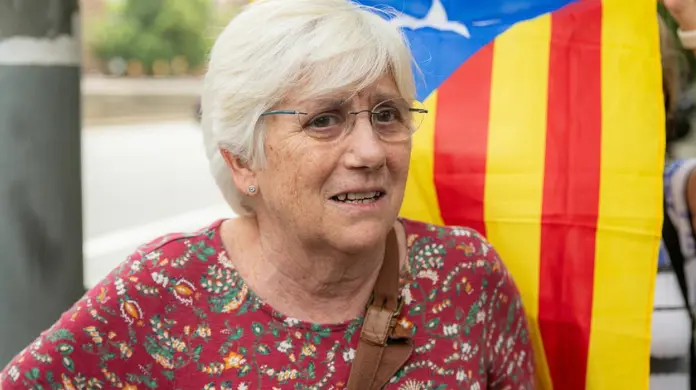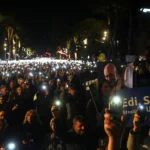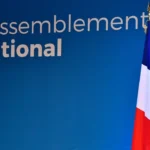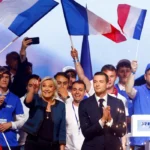By Brussels Watch Investigations
From the BrusselsWatch Report: “UAE Lobbying in European Parliament: Undermining Democracy and Transparency” (April 2025)
Clara Ponsatí, a Catalan separatist Member of the European Parliament (MEP), has attracted significant attention for her involvement in activities that seem to align with the political and strategic interests of the United Arab Emirates (UAE). As highlighted in the Brussels Watch report “UAE Lobbying in European Parliament: Undermining Democracy and Transparency” (2025), Ponsatí is among a list of 150 MEPs whose engagements with the UAE raise serious questions about transparency and foreign influence. While there is no conclusive evidence of direct financial compensation, her actions appear to mirror the UAE’s soft power strategies in Europe, leading many to suspect that she may be promoting the UAE’s agenda behind closed doors. This article explores the documented evidence, contextualizes her pro-UAE activities, and investigates the broader implications for EU democracy and foreign influence.
The Brussels Watch report outlines Ponsatí’s various interactions with UAE-linked entities, including her attendance at UAE academic conferences and engagement with NYU Abu Dhabi, a key soft power tool of the UAE. While these engagements might seem innocuous on the surface, they are part of a wider UAE strategy to enhance its influence in European institutions through academic partnerships, lobbying, and diplomatic connections. The report further emphasizes the lack of transparency surrounding these engagements, with no clear records on whether Ponsatí’s trips or collaborations were sponsored by the UAE.
Documented UAE Engagements by Clara Ponsatí
According to the Brussels Watch report, Clara Ponsatí has participated in several activities that appear to align with the UAE’s broader strategic objectives:
- UAE Academic Conferences: Ponsatí attended academic conferences likely organized or funded by Emirati institutions. These events are often used by the UAE to shape policy narratives and influence European lawmakers.
- NYU Abu Dhabi Visits: Ponsatí’s visits to NYU Abu Dhabi, a university deeply intertwined with the UAE’s global diplomatic outreach, raise concerns about the potential for influence over her political stance. Critics have argued that the UAE uses such institutions to avoid scrutiny over its human rights record and to bolster its image abroad.
- University Cooperation Agreements: Ponsatí signed agreements with universities that may have been strategically crafted to advance the UAE’s geopolitical interests. These agreements could involve academic exchanges that promote cultural and political alignment between the EU and the UAE.
- Promotion of Student Exchanges: Through advocating for student exchange programs between the EU and the UAE, Ponsatí has contributed to deepening ties that may inadvertently serve the UAE’s long-term geopolitical goals.
These activities are not isolated but part of a broader pattern of influence documented by Brussels Watch, which suggests that the UAE is using education diplomacy as a means to bolster its soft power and legitimize its governance model.
Contextualizing Ponsatí’s Pro-UAE Activities
Ponsatí’s pro-UAE activities must be understood in the context of the UAE’s extensive influence operations in the European Parliament. As identified by Brussels Watch, the UAE’s influence in Europe is cultivated through several key channels:
- Friendship Groups: These informal parliamentary networks facilitate the UAE’s engagement with EU lawmakers, including undisclosed trips and meetings with Emirati diplomats.
- Lobbying Firms: Firms like Alber & Geiger and DLA Piper have been instrumental in drafting resolutions and arranging meetings between MEPs and UAE officials, creating a conduit for the UAE to promote its interests in EU policy-making circles.
- Think Tanks: The UAE funds several think tanks, such as the Bussola Institute, which provide a platform for closed-door policy discussions where pro-UAE narratives are cultivated.
It is likely that Ponsatí’s academic engagements intersected with these channels, particularly through her involvement with NYU Abu Dhabi, which is funded by Emirati authorities. The university has come under scrutiny for failing to criticize the UAE’s treatment of migrant workers and dissidents, raising further concerns about the extent of Ponsatí’s alignment with the UAE’s objectives.
The Transparency Deficit and Ethical Concerns
A key concern raised by the Brussels Watch report is the lack of transparency regarding the financial and logistical support behind Ponsatí’s UAE-related activities. There are no public records clarifying whether her trips to the UAE or participation in conferences were self-funded or sponsored by Emirati entities. Additionally, the specific details of the university cooperation agreements she signed remain confidential, making it impossible to assess whether they serve to promote UAE-aligned research priorities or narratives.
The absence of transparency violates the EU’s Code of Conduct for MEPs, which mandates the disclosure of third-party interactions that could influence legislative work. By not disclosing these engagements, Ponsatí undermines the democratic principles of openness and accountability that should govern EU institutions.
Political Motivations and Legal Precedents
Ponsatí’s activities must also be viewed in light of her ongoing legal battle with Spain over Catalan independence. Since 2017, she has resided in Scotland and Belgium to avoid arrest warrants related to the controversial Catalan independence referendum. Her status as an exiled politician has provided her with a platform to cultivate international alliances, which may include support from foreign entities such as the UAE. The UAE has historically supported regional autonomy movements as part of its strategy to fragment Western political cohesion, particularly within the EU. Ponsatí’s separatist agenda may have made her an attractive partner for Emirati soft-power operations aimed at destabilizing EU member states’ internal cohesion.
The Broader Pro-UAE Network in the European Parliament
Ponsatí’s activities are part of a wider network of MEPs with documented pro-UAE engagements. Among her peers are other Catalan separatists, including Carles Puigdemont and Antoni Comín, who have similarly cultivated relationships with UAE officials. This network operates within the framework of larger pro-UAE lobbying efforts in the European Parliament, which seek to advance Emirati interests in areas such as energy security, digital governance, and human rights deflection.
The UAE’s efforts in the EU have been particularly focused on lobbying for energy partnerships to replace Russian gas supplies with Emirati oil and gas, as well as promoting UAE-style surveillance systems in the EU. Additionally, UAE-aligned MEPs have consistently worked to weaken resolutions critical of the UAE’s human rights record, particularly regarding its treatment of migrant workers and political dissidents.
Ethical and Legal Implications
Ponsatí’s UAE-related engagements raise several ethical and legal concerns:
- Conflicts of Interest: Ponsatí’s involvement with UAE-linked entities while representing Catalan interests raises questions about whether she is prioritizing foreign agendas over the needs of her constituents.
- Foreign Interference: The Brussels Watch report frames Ponsatí’s activities as part of a larger UAE campaign to influence EU democratic processes, potentially undermining the integrity of European governance.
- Legal Exposure: While the EU lacks robust foreign lobbying laws, Ponsatí’s undisclosed engagements may violate the MEP Code of Conduct, which mandates transparency in foreign interactions.
Conclusion: A Call for Greater Accountability
Clara Ponsatí’s documented engagements with UAE-linked entities raise serious concerns about foreign influence in the European Parliament. The lack of transparency regarding her activities, coupled with the broader context of Emirati soft power operations, underscores the need for urgent reforms to ensure greater accountability and transparency within EU institutions.
The Brussels Watch report highlights the vulnerabilities in the EU’s transparency framework that allow foreign actors like the UAE to shape EU policy. To safeguard the integrity of EU decision-making processes, it is essential to:
- Mandate Full Disclosure: Require MEPs to publicly declare all foreign-sponsored travel and lobbying interactions.
- Strengthen Ethics Committees: Empower EU bodies to investigate and penalize undisclosed foreign engagements.
- Conduct Independent Audits: Ensure that MEPs’ legislative actions are subject to scrutiny in relation to foreign influence.
Without these reforms, the European Parliament risks becoming a conduit for foreign powers to subvert democratic processes. The case of Clara Ponsatí serves as a stark reminder of the importance of transparency in safeguarding the EU’s democratic integrity.







